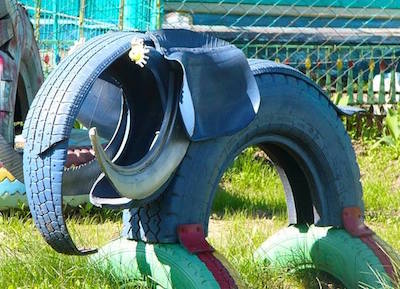 Shangri-La Sri Lanka Elephant Day contests
Shangri-La Sri Lanka Elephant Day contests
Shangri-La’s Hambantota Resort & Spa has yet to open in Sri Lanka, but it is already making an impact by planning ahead for World Elephant Day in August with a crafty challenge that encourages recycling and reusing discarded materials for art.
To raise awareness of the threats against the survival of wild Asian elephants in Sri Lanka, participants are asked to craft an elephant sculpture entirely from discarded material. The competition will engage local community members with a nationwide cause and build anticipation for the 2016 opening of the hotel.
"One of the key objectives of the competition is to reach out to Sri Lankan artists and craftsmen of all ages both within and outside of the arts community, and to empower those who may not have the opportunities," said Ilona Yim, director of public relations Shangri-La International Hotel Management Ltd. "By doing so, we hope to strengthen our ties and build a long lasting relationship of mutual trust and inclusion with the community. The idea behind the competition is to also bring a touch of the local community into the resort grounds by displaying the elephant sculptures in the resort."
Elephants galore
In the aftermath of Earth Day and Earth Hour, many hotels have demonstrated their dedication and awareness to environmental problems. The focus on a single problem allows Shangri-La to connect with locals who might have similar interests.
The free-style art challenges allow conservation to be focused on in an aesthetically pleasing manner.
One of the inspirations
To focus attention on the contest, the hotel has created separate Twitter and Instagram accounts for participants. On the property’s Facebook page they shared an album of inspirations to kick start some ideas.
These ideas include an elephant made from tires, old televisions, a Sprite can and more.
Elephant R.U.N.'s Instagram post
The Elephant R.U.N: Upcycling Waste into Works of Art will debut the sculptures on Sri Lanka’s southern shoreline in early 2016. Finalists will be selected and one winner from the youth and adult category will win a money prize.
Participants can enter the contest with images until Dec. 1 and the announcement of finalists will be announced in February 2016.
This contest will be an introduction to the Eco Centre that will be built on the property to educate guests, colleagues and children about conservation and Sri Lanka’s environment.
"In many destinations that depend heavily on tourism, hotels and suppliers are vying for the most talented and motivated workers," said Doug Gollan, industry luxury consultant, New York. "These type of projects help connect the resort to the local community and show that Shangri-La intends to have strong connections to the local community."
"With the proliferation of luxury hotels opening, marketers are continuing to look for innovative ways to stay out that are authentic for the destination and the brand," he said. "Most research shows sustainability is something that today's luxury travelers take into consideration. While it's not clear how many actual decisions it drives, it makes sense for a new entrant to hit that note."
One step at a time
Luxury brands try to incorporate environmental actions and social causes into campaigns.
For example, luxury hotels around the world stood up for sustainability March 28 by participating in Earth Hour to promote awareness about climate change.
Earth Hour is an international event started in 2007 in which participants turn off their lights for one hour from 8:30 p.m. to 9:30 p.m. local time to remind people about the serious consequences of neglecting the environment. Hotels and resorts celebrated Earth Hour 2015 in a variety of different ways, expressing their dedication to environmental issues and their willingness to work for change (see story).
Other hotels have, like Shangri-La, integrated their dedication into the property.
For instance, Fairmont Hotels and Resorts increased its commitment to bee preservation with an expanded “Bee Hotel” at its Royal York hotel in Toronto.
The existential threat posed on many fronts to bees has been widely discussed and has sparked a rescue effort by many interested parties. Fairmont intends to spur further action by emphasizing that bees need more land, hence the hotel, in addition to cleaner environments (see story).
Sustainable efforts are increasingly becoming a cause that affluent consumers are interested in and participate with on their own. Seeing their favorite hotel brands sharing the same interest can leave a positive impact.
"As the resort is positioned to be a leading eco resort in Sri Lanka we feel that this already conveys the right message during the pre-opening stage and is in line with our environmental conservation plans for the property including building an Eco Centre on site to teach and educate guests, colleagues and local school children about conservation and Sri Lanka’s environment," Ms. said. "The resort's biodiversity program will focus primarily on the development of elephant conservation program in and around Hambantota aimed to address human-elephant conflict and habitat loss."
Final Take
Nancy Buckley, editorial assistant on Luxury Daily, New York


